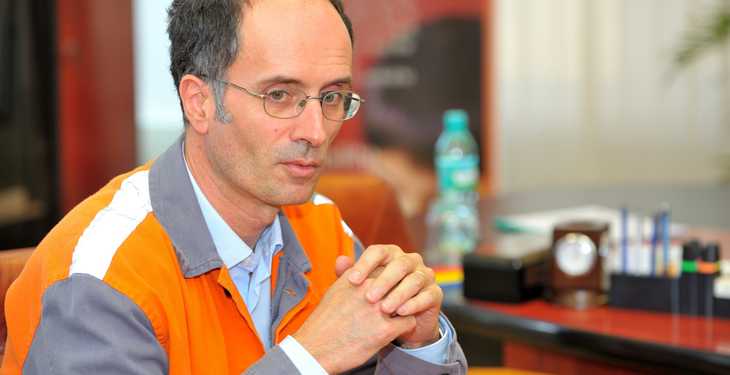While Chinese steel producers are threatening Europe with dumping prices, ArcelorMittal Galati, that exports two thirds of its local production, needs a better environment to face international competition, says Bruno Ribo, general manager of ArcelorMittal Galati.
As the Romanian renewables industry lobbies on for better subsidy scheme, ArcelorMittal benefits from an exemption of 85% from the payment of the subsidy instruments- green certificates(GCs). But the subsidy is soon to change, if we believe latest reports from the regulatory body ANRE and the government’s officials.
However, Bruno Ribo told energynomics that ArcelorMittal has not entered yet new negotiations with the government regarding the possible increase of the GCs quota next year.
“Not yet. But it is a great concern to us, because we see that whenever there are changes, we have the tendency not to take serious impact studies. At least on the consumption side”, Ribo answered energynomics.ro questions.
The steel maker benefits from a maximum of 85% exemption from the payment of GCs, and wants to keep this ratio for the years to come.
“For sure, (we want to keep this amount), we want stability of this system. The system in Romania started very late, as compared to other countries in Europe, and the level of exemption is not that high. We are somehow concerned on the level of subsidies for cogeneration, as the subsidies are distributed also to the non-efficient cogeneration.”
Ribo also says that Romania should adopt the system of indirect compensation for the carbon dioxide (CO2) emissions.
”Energy producers on coal are forced to buy certificates. This generates a source of taxes that can be redistributed. Indirectly, this is offset by the producer via the energy price. Other countries are using this income to offset the negative impact of the industrial consumers. The is legal, authorised by the EU. Romania is one of the remaining countries that did not take an initiative in this direction,” Ribo adds.
Contesting the gas market trading regulation
Ribo says that trading up to 40% of the gas on an uncompetitive market is wrong, and does not help Romanian producers. The trading should start next year, according to latest regulations, however, the rise to 40% should ”have been done more gradually.”
He gave as example the power platform OPCOM, that favored traders.
”I am not an expert in energy, but many things could have been done to revise the concept on how the platform was working,” Ribo says, lobbying for re-introduction of bilateral contracts.
Ribo explained that ArcelorMittal has a particular consumption profile and does not buy energy to speculate on the energy market.
“I remember we came to the platform with a bid, and the whole package was taken by one trader for 1 extra RON, and that was further exported to a neighboring country several years ago. In the gas market, it will be also difficult to us to accommodate with such platform”, Ribo says.
He explains that the gas prices will grow once producers and suppliers will have to sell in the platform a centrain amount, offering the Polish example.
”Such a measure was taken by Poland a few years ago. This lead to an increase in prices for the industrial consumers.”

